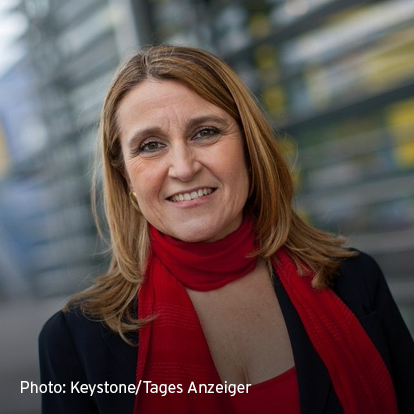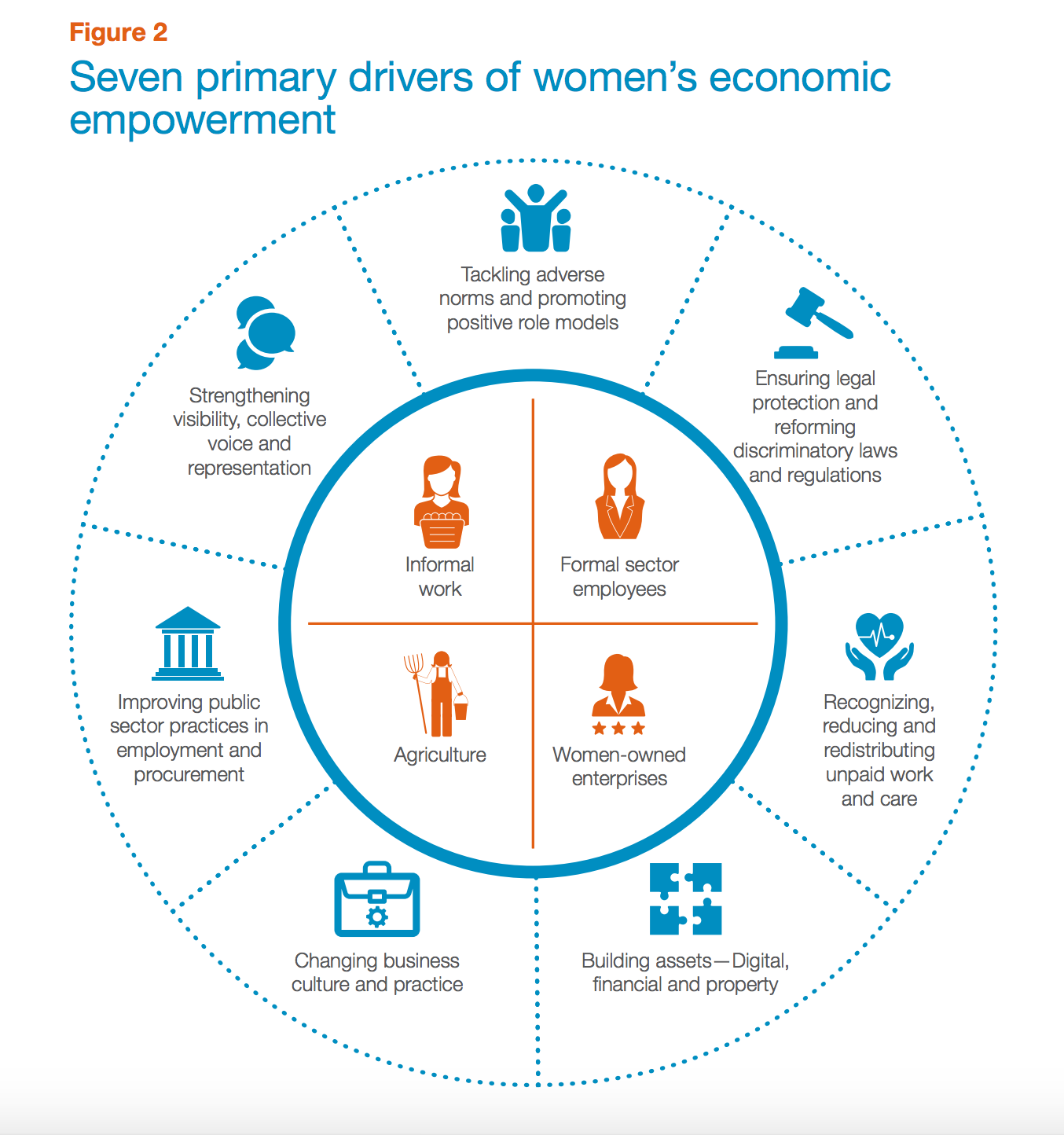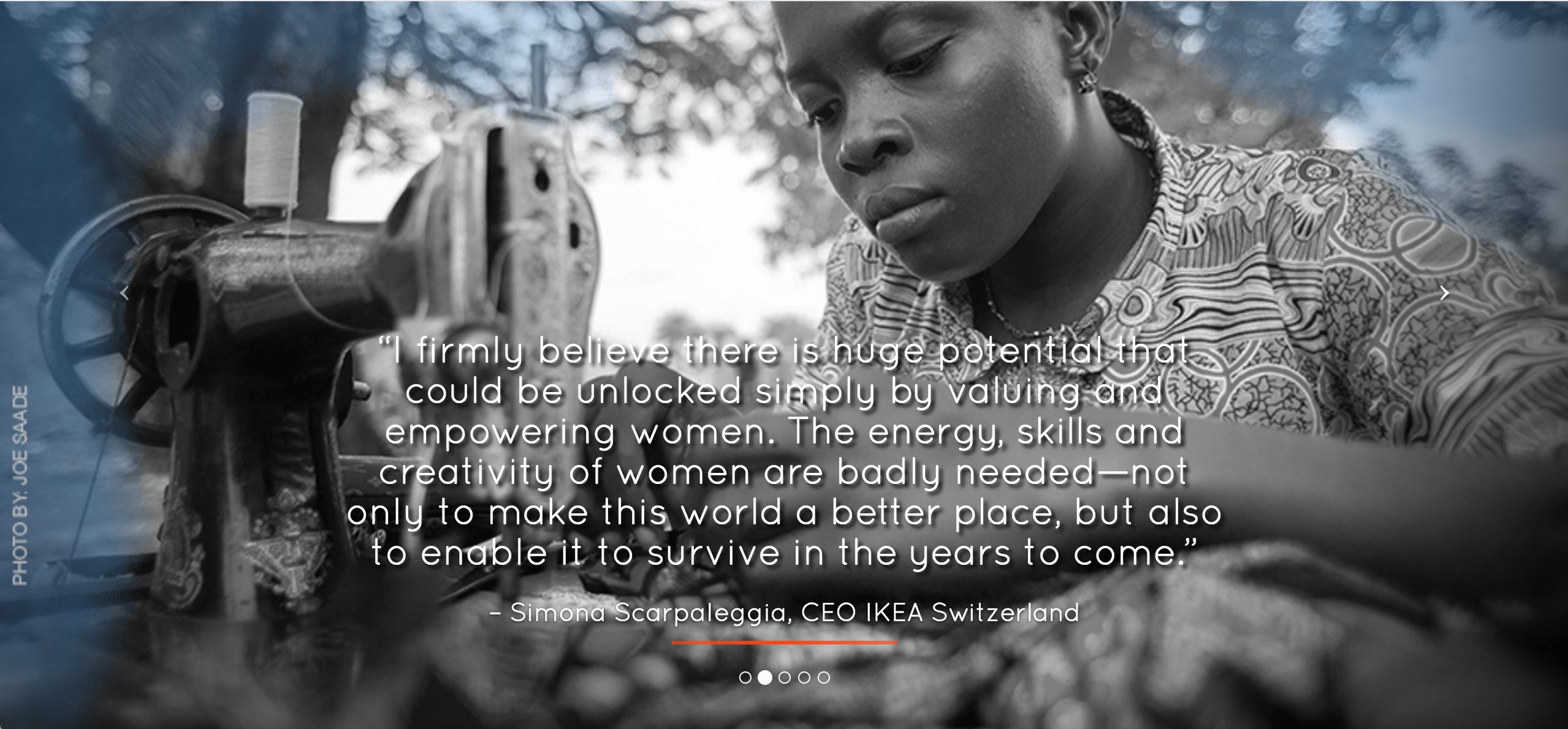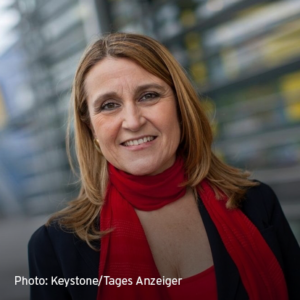 Women around the world prove again and again that they are resilient and resourceful economic agents, overcoming persistent, gender-based barriers to advance their careers, their financial livelihoods, and the health of their families. We see women succeed in spite of laws, policies, and institutions that hold them back. But we also know that removing these barriers would allow women to achieve their economic goals with greater ease, to the benefit of all.
Women around the world prove again and again that they are resilient and resourceful economic agents, overcoming persistent, gender-based barriers to advance their careers, their financial livelihoods, and the health of their families. We see women succeed in spite of laws, policies, and institutions that hold them back. But we also know that removing these barriers would allow women to achieve their economic goals with greater ease, to the benefit of all.
This shift in priorities requires that business leaders and policymakers in positions of influence design our companies and economic systems in a new way. Women Deliver President/CEO Katja Iversen had a conversation with one such champion, Simona Scarpaleggia. Ms. Scarpaleggia has been CEO of IKEA Switzerland since May 2010, is a passionate campaigner for all issues surrounding women’s empowerment, and was recently appointed Co-Chair of the UN High Level Panel on Women Economic Empowerment. Below, she shares her insights on the potential of women in business and her vision for making that potential a reality.
Katja: You are the co-chair of the UN Secretary-General’s High-Level Panel on Women’s Economic Empowerment. It is a sad reality that we here in the 21st century still need a panel like this. What is the main challenge women still face in terms of participating in the economy, and what’s the trajectory for overcoming it?
Simona: The world is still governed by patriarchal rules. This is the biggest challenge not only women but society faces today. These existing rules dominate the way things run, both in the world of politics and business. This results in unequal opportunities, unattractive or even unsuitable working conditions for women. Biases, which define the decision-making, are at the core of this dilemma.
The good news is we can overcome this. We need a paradigm shift in the mindset of leaders and decision-makers alike. What the world needs now is women and men working together. We must encourage organisations to change their approach. We can begin to get closer to gender parity and a world in which we leave no man or woman behind. It does not make sense to ignore or undermine half of the potential workforce at all.
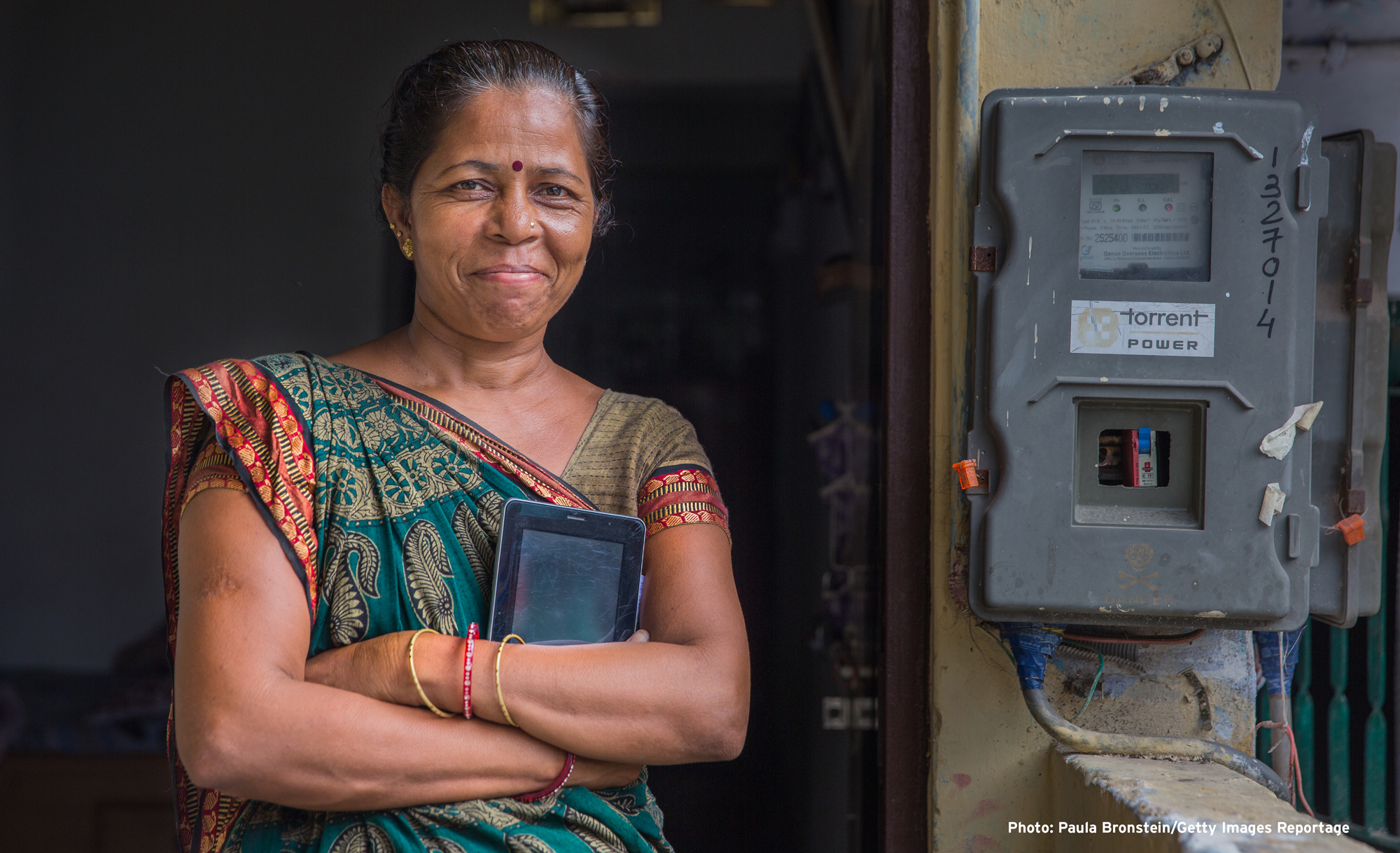
Katja: We have seen that when women are given a fair opportunity to learn and earn – when they get a space in the formal economy – families, communities and societies at large fare better. It has also been identified as crucial to achieving the Sustainable Development Goals. Why is it important to look at gender equality and economic empowerment as a cross-cutting and economic issue, and not just as a woman’s issues?
Simona: The first important step is to empower and support women to develop their full potential. Their economic empowerment will be a natural consequence. Yet, because of widespread oppression, millions of women still lack financial literacy. Many of them do not have the ability to achieve economic stability and independence. There is a need for change at the deepest level.
We need to break down the cultural biases. We need to change customs, business practices and attitudes that prevail in the world. We need to ensure that women and girls have better access to education.
From the entrepreneurial view, it is obvious. Mixed gender teams perform better. Gender balanced companies live a more constructive corporate culture. Moreover, according to the numbers these companies usually have a healthier bottom line. We should not need any more proof to trust the benefits of empowering and including women.
Source: Report of the UN Secretary General’s High-Level Panel on Women’s Economic Empowerment
Katja: The High Level Panel came out with its first report in September, Leave No One Behind, A Call to Action for Gender Equality and Women’s Economic Empowerment. The report highlights seven proven drivers for expanding women’s economic opportunities. How will the Panel work with different constituencies to see those drivers translated from the page into practice?
Simona: There is no one-step solution or easy answer to this question. Consider the various cultural, economic, and political conditions all around the world. We have reached the first milestone by addressing the seven proven drivers. Now it is time to work on even more concrete recommendations and to trigger action. This goes beyond the organizations that support the panel with their thought leadership. All stakeholders play a pivotal role. Be it the public or private sectors, NGOs or intergovernmental institutions, even individuals can contribute.
For instance, the public sector should commit to end discriminatory norms and practices. They should work on closing the gender gaps in legal and social protection. But also secure awareness, understanding, and consensus around those changes. On the other side, businesses can change their culture, practices, and policies. They know how to set and replicate virtuous examples, and with that become a major driver of women’s economic opportunities.
Katja: As we at Women Deliver and the Deliver for Good Campaign say: women’s economic empowerment is everybody’s business – and it can’t be business as usual. As the co-chair of the High Level Panel and a leader in a global company, what, in your opinion, is the most important role and responsibility of the private sector in facilitating women’s economic empowerment – apart from hiring them?
Simona: First, companies must apply the basic protections and standards at all levels in the organisations, both for men and women. To start with, companies can also sign the Women’s Empowerment Principles. It is certainly not enough to just hire women. It is important to address explicit and implicit bias to recruitment and promotions. Companies must secure equal pay through appropriate processes.
And since the world is becoming more intertwined, we need flexible work options. This implies a cultural shift from task orientation to result orientation, which will be beneficial for both for women and men.
Business leaders have a crucial role. They should not only promote the new policies. They are also responsible when it comes to monitoring progress.
This is no utopia. In fact, at IKEA Switzerland, we have worked on all these aspects and achieved the highest level of EDGE certification. This certifies that we were able to close the pay gap and presence gap of women in all ranks of the organisation. It has contributed to the good business results of the company.
Luckily, more and more companies are getting engaged. They realize that enabling women to reach their full potential, at all levels of the supply chain, will deliver better results.
Katja: When we talk about women’s economic participation and empowerment, we have to look at the bigger picture. A woman’s chance for getting and keeping a job is closely tied to her opportunities for getting an education, to her unpaid work load at home, and whether she has the power to decide if, when, and how often to have children. Can you give us some examples about how IKEA fosters such an integrated approach, particularly in your value chain in countries where the gender gap is deeper?
Simona: The foundation for all this lies in our strong set of values. Togetherness, enthusiasm, and the constant desire for renewal guides us.
We offer flexible working conditions and part-time working in leadership positions. This includes working from remote and family-friendly policies. We introduce parental leave for fathers to support their partner in child-care. In addition, we secure equal pay for work of equal value and equal opportunities. All this creates a culture of gender equality.
In other countries, IKEA Group is also well underway with similar initiatives. Globally we have set the target of reaching the 50/50 goal throughout by 2020.
At IKEA Switzerland, our management team consists of a 50/50 balance of men and women. This 50/50 ratio runs through the entire workforce. In 2016, we surpassed our financial targets and reached 1 billion CHF turnover, all under difficult market conditions.
Katja: We live in a time where, in some places, there is still a strong resistance to female leadership. You are an accomplished woman in a CEO position who has worked across countries and cultures, and through the work on the High Level Panel, you taken a deep dive into barriers and solutions. How have you yourself dealt with such resistance? Have you seen it shrink or evolve over time? And what would be your one advice or encouragement to other leaders in regards to fostering women’s economic empowerment?
Simona: I cannot recommend a standard behaviour or solution. Talking about me, I built on my strengths. I equipped myself with professional content and expertise. Letting people express their resistance and showing understanding, as well as different solutions, have helped me a lot. I never let people explicitly discriminate against me and I picked the fight if necessary. Things started changing faster as the number of women increased in the organization. I contributed by hiring more of them.
